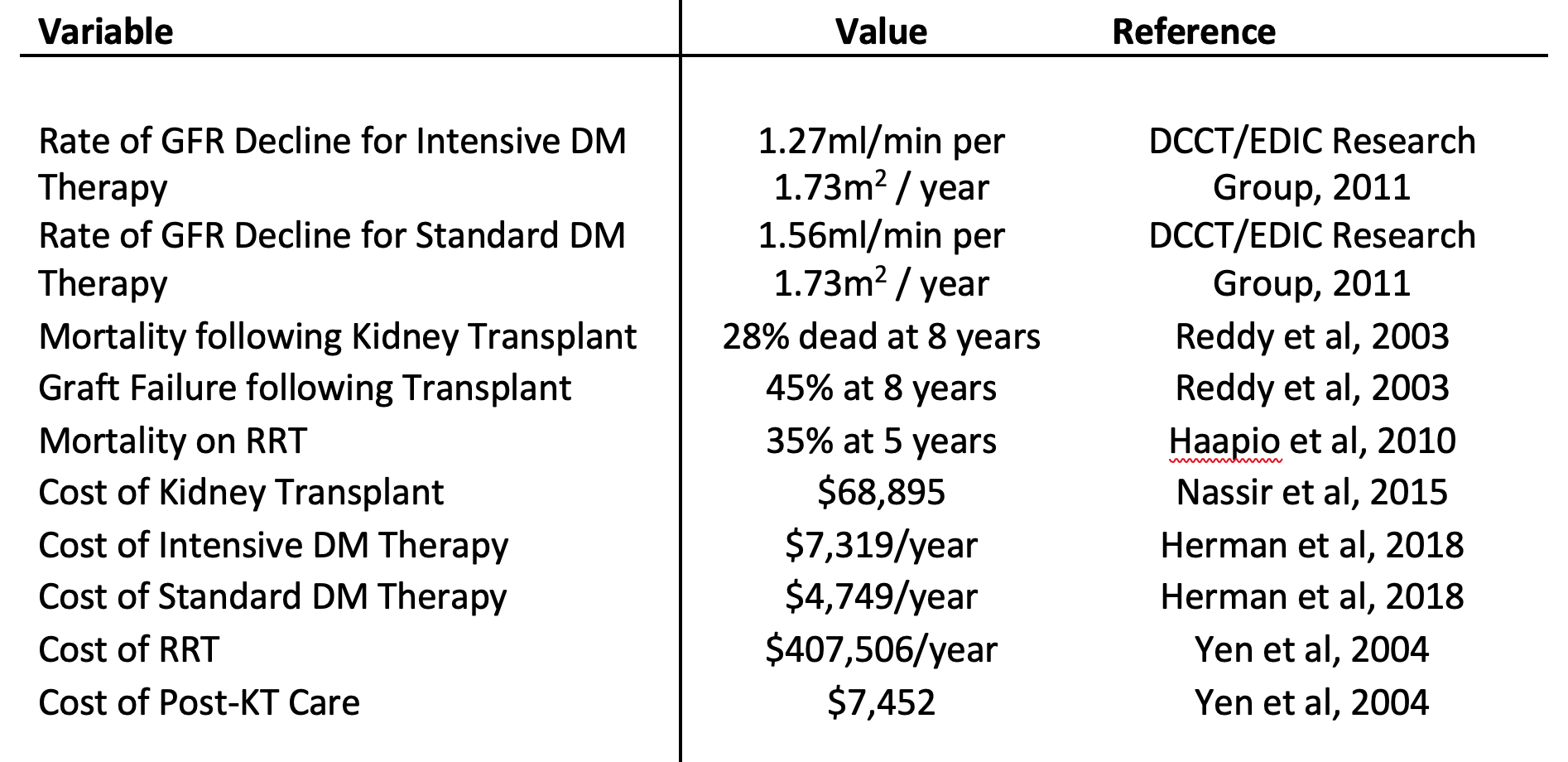Early intensive medical therapy for type 1 diabetic patients associated with reduced long-term costs and improved survival
Rashikh Choudhury1, Dor Yoeli1, Hunter B. Moore1, Hillary Yaffe1, Trevor L. Nydam1, Peter Kennealey1.
1Department of Surgery-Division of Transplantation Surgery, University of Colorado Hospital, Aurora, CO, United States
Background: Intensive medical therapy (IMT) for type 1 diabetic (T1DM) patients has been associated with cardio and renal-protective outcomes, when compared to standard medical therapy (SMT). However, the costly nature of IMT has reduced its widespread adoption amongst medical providers in the United States. It remains unclear whether/for which patients IMT may offer a cost-effective therapeutic option.
Methods: A decision analytic Markov state transition model was created to simulate the life of T1DM patients with chronic kidney disease (CKD). Two patient groups were created (1,000 patients each) whereby patients underwent either IMT or SMT. State transitions to end-stage renal disease requiring dialysis, transplantation, and death were modeled, as well as associated costs. Base case patients were defined as being 35 years old with an initial GFR of 60ml/min. Markov parameters were extracted from literature review (1-4).
Results: Survival-Sensitivity analysis demonstrated that IMT improved survival for all patients, regardless of GFR; base case patients who underwent IMT gained 2.9 additional years of life compared to those who underwent SMT. Cost-Sensitivity analysis demonstrated that IMT was cost-effective for initial GFR > 56.5ml/min.
Conclusion: IMT improves survival and is associated with lower total life-time medical costs for patients with mild CKD (stage 1 and stage 2). Early implementation of IMT is strongly encouraged to not only lower medical complications of T1DM, but also to lower total healthcare costs.




[1] J Am Soc Nephrol. 2016 Nov; 27(11): 3238–3252.
[2] Am J Manag Care. 2009 Aug;15(8):509-18.
[3] Perit Dial Int. 2019 Jan-Feb;39(1):25-34. doi: 10.3747/pdi.2017.00207.
[4] Transpl Int. 2019 Nov 9. doi: 10.1111/tri.13552
There are no comments yet...